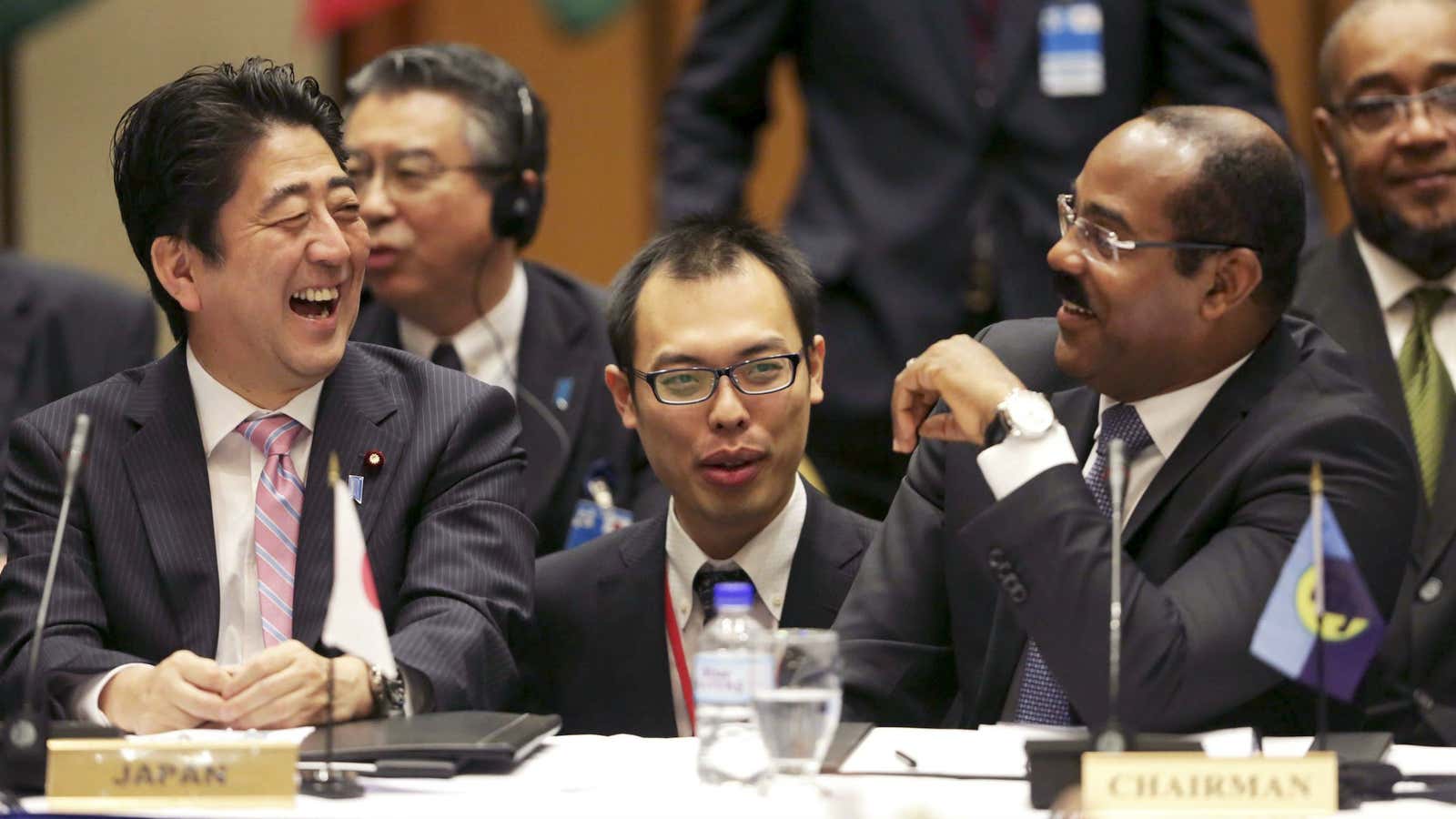While Japanese prime minister Shinzo Abe is making new friends in Latin America this week, he is losing them at home. Abe’s domestic approval rating has fallen to 48%, the lowest point since he was elected in 2012 and a dramatic drop from a 76% approval rating last April, according to a survey by the Japanese newspaper the Nikkei.
The drop is a troubling sign that the architect of Abenomics, a three-part economic plan to revive Japanese economy, may have exhausted his political capital while difficult structural reforms—the so-called “third arrow” of Abe’s economic experiment—have yet to be launched.
Of the country’s last six leaders, Abe has stayed in office the longest—mostly because of the initial successes of his economic reforms, which boosted growth and Japanese stocks last year. Now those gains are starting to fade. Inflation is stuck at 1.3%, well below the government’s target of 2%. According to data released today, unemployment in June unexpectedly rose to 3.7% and household spending fell 3%. Average wages per worker have also fallen.
Yet, instead of focusing on needed reforms on labor, immigration, and taxes (paywall), Abe has been visiting more than 40 other countries and pushing through deeply unpopular policies at home, critics observe. These include a revision of the constitution to allow for a greater role of the Japanese military overseas, which prompted protests and one self-immolation, a states-secret law that critics say will muzzle the media, and a sales tax hike that has hit the middle class the hardest. “Sooner or later, Abe will lose the political power to make necessary reforms,” writes Richard Katz, editor of the The Oriental Economist Report.
For other nationalist, economic-focused Asian leaders like India’s Narendra Modi, who fancies himself India’s answer to Abe, the prime minister’s declining popularity should be a warning that the difficult economic reforms are best done early, or they might not happen at all.
